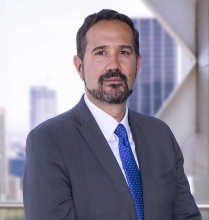Nearshoring: Key issues for companies looking to relocate or expand business in Mexico
Due to its unique geographic location with respect to the North American, European and Asian markets, as well as its simultaneous integration to global value chains due to international trade and investment treaties such as the USMCA and the CPTPP, Mexico has positioned itself as one of the main destinations for the relocation of companies known as “nearshoring”. In this article, we share key information about this trend in international business.
What is nearshoring?
The 2020 health crisis, recent geopolitical conflicts in Eastern Europe and political and commercial tensions between China and the United States have contributed to the modification of global value chains in various sectors of the economy that depended on the free transit of goods and efficient trade routes. In this context, nearshoring is understood as a trend that seeks to relocate production, supply, and logistics processes as close as possible to the main final consumer markets.
With nearshoring, companies seek to reduce logistics costs, minimize supply chain risks and reach their end consumers more quickly.
Why Mexico?
Mexico's strategic geographic location, including its large border with the United States and its ports on the Pacific and Atlantic oceans, its integration into value chains with the U.S. market, its availability of well-trained technical and professional workforce, and the competitive advantages offered by the USMCA for products produced or assembled in Mexico, have put several regions of the country in the spotlight of foreign investment, including mainly the states of Nuevo León, Coahuila, Chihuahua, Zacatecas, Guanajuato, Querétaro and the State of Mexico.
It is estimated that during the last 10 months around 4 million square meters of new constructions has been added in industrial and logistics parks throughout the country and the demand continues to increase. The Inter-American Development Bank (IDB) forecasts that in the short and medium term Mexico will have an approximate growth of 35 billion dollars in exports as a result of nearshoring alone.
Border with the United States
Mexico shares more than 3,000 km of border with the United States. As a result, most of the relocation of companies is taking place in the border states and in the center of the country. Such is the case of companies manufacturing auto parts, electronic devices and semiconductors, aerospace components, medical devices and generic drugs, as well as the installation of data centers and distribution facilities, among many others, which have come to the northern states of Mexico due to their proximity to the U.S. market, but also to the center of the country (Bajío area) due to its logistical advantages.
Nuevo León has been the state that has attracted the largest amount of investment considered as nearshoring, accounting for approximately more than 4 billion dollars.
What legal issues companies relocating to Mexico should consider?
From a legal perspective, there are several issues to consider for the relocation of companies to Mexican territory, including the following:
1. Leasing/acquisition and construction of facilities
Having a suitable location for production, logistics and service activities is essential. Most of the companies that relocate or expand businesses in Mexico seek to do so at industrial and logistics parks, either by acquiring and/or leasing facilities already built, or by acquiring and/or leasing land for the construction of their industrial or logistics facilities, often on a build-to-suit basis. In all cases, legal, environmental, and regulatory due diligence is of the utmost importance.
Typically, developers and operators of industrial and logistics parks, as well as contractors of industrial and logistics warehouses have a good degree of sophistication, so a high level of care should be considered in the review and negotiation of the respective contracts. On the other hand, some state governments promote relocation in their territories by granting sundry incentives.
Companies should consider the specific features offered by each location that are most relevant to their activities, including roads and rail connectivity, natural gas, water and electricity supply.
The terms and conditions to be agreed upon in real estate leases and construction contracts for the building of facilities should be carefully drafted to protect the interests of the relocating companies and to cover any contingencies that could delay their installation in the country.
2. Regulatory and environmental issues
Depending on the line of business, there are a series of regulatory and environmental issues that must be considered and that involve securing governmental permits from the three levels of government: municipal, state and federal.
An essential component in the process of selecting, acquiring, leasing and operating industrial, logistics or service facilities is the identification of the main regulatory requirements, risks and opportunities of the activities and locations sought, including the analysis of issues such as land use, zoning, ecological land use planning, environmental liabilities in soil or subsoil, existance of federal zones or bodies of water, environmental impact and risk assessment, civil protection requirements and the public law regime for agrarian property, to mention a few.
3. Connection to the power grid and power supply
Ensuring a reliable and quality supply of electric energy has been one of the most important issues for companies relocating to Mexico. In this regard, different power supply alternatives and arranging interconnection to the national electricity grid must be carefully considered, depending on the energy consumption needs of each company.
The current legal and regulatory framework of the electricity sector in Mexico offers alternatives to purchase energy from private suppliers and traders in the Wholesale Electricity Market (MEM) or from the state-owned company CFE and its subsidiaries. There is also the possibility of generating power for self consumption under the isolated supply and distributed generation schemes.
4. Financing
The relocation and expansion of companies normally requires heavy investments, which are covered in some cases with equity but mostly with debt through various corporate financing schemes, project finance or secured financing, including loans from commercial banks, multilateral agencies (IFC and IDB, among others) and specialized funds (including CKDs), as well as equipment and machinery leasing by local financial leasing companies and specialized financial institutions (SOFOMES).
5. Labor issues
Relocating companies will also have to consider hiring personnel and complying with applicable labor and social security laws and regulations, as well as anticipating - as the case may be - for relations with labor unions.
Mexico now has new labor legislation that ensures compliance with the principles of freedom of association (including freedom of non-association) and union democracy. On the other hand, during 2022 a new more horizontal labor justice system was completed, in which conciliation is privileged in the resolution of conflicts, as well as oral proceedings, immediacy and speed in dispute resolution, including measures that help to end corruption.
It will be important for companies relocating to Mexico to consider the new legislation regarding outsourcing, limitations on employee profit sharing, and home office schemes.
6. Corporate issues
As in any new or expanding investment in Mexico, foreign companies must plan the best corporate and tax structure to operate, starting by selecting the ideal corporate vehicles for their tax and investment planning, corporate governance and the agents that will execute the business.
Once the corporate structure has been defined, in order to implement it sundry legal provisions applicable in Mexico will have to be taken into account, such as the incorporation of companies with at least two partners or shareholders. In very limited cases, the identification of restrictions on foreign investment, as well as compliance with obligations regarding the prevention of money laundering, and immigration status of expatriates, among other characteristics of the initial stage of the investment.
In this regard, companies must comply with applicable corporate and foreign investment legislation, including proper maintenance of corporate obligations, such as public registries and corporate books keeping.
7. Tax issues
Compliance with tax laws and regulations, as well as the most suitable and timely definition of the business tax strategy, are essential issues to take care of for those companies that will relocate to Mexico.
In general terms, taxation in Mexico is based on Income Tax, Value Added Tax and Special Tax on Production and Services (applicable to certain industries and activities). In addition, there are other relevant taxes and contributions, such as social security contributions and payroll tax that must be paid in the name and on behalf of the workers.
The Real Estate Acquisition Tax and similar state taxes also deserve special attention for companies that will establish or expand in Mexico.
In terms of taxes and policies to encourage the country's manufacturing industry, Mexico has tax and administrative benefits for maquiladora companies that manufacture goods mainly for export.
Internationally, Mexico has one of the most extensive networks of bilateral treaties in Latin America to avoid double taxation, which makes it a highly attractive country for making investments from abroad and obtaining tax benefits in their repatriation. It is also important to point out that Mexico has adhered to the application of the Multilateral Instrument for the implementation of measures related to treaties to avoid double taxation.
Finally, it is important to point out that Mexico, as a member country of the OECD, designs and establishes its tax policies contrasting them with the experience of the best practices in the international arena; as proof of this, Mexico has incorporated to its tax legislation various provisions that seek to discourage and prevent tax evasion, double taxation and the abusive use of international tax treaties, provisions that in turn provide legal certainty to investors in our country.
Contacts






